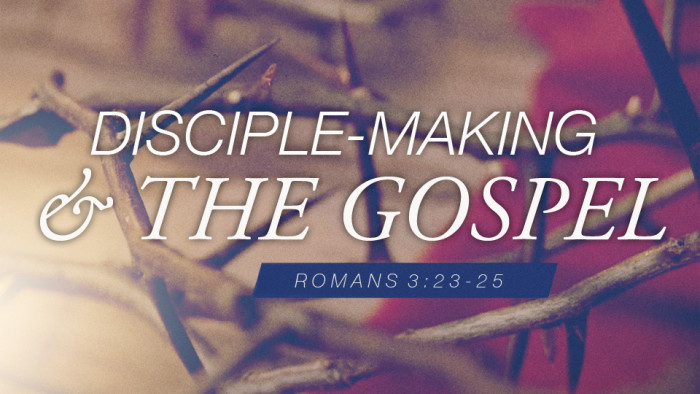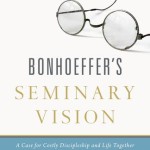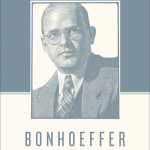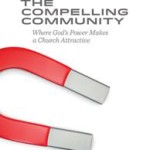Yesterday I wrote briefly about the theological enigma that is Dietrich Bonhoeffer. Today I continue with an overview of his theological journey, particularly as it relates to the development of convictions that would eventually give rise to his two bestsellers: The Cost of Discipleship and Life Together.
“I Heard the Gospel Preached in the Negro Churches”
In the spring of 1930 Bonhoeffer received an invitation from Henry Sloane Coffin, president of Union Theological Seminary in NYC, to apply for a postdoctoral fellowship. Ever the traveler, Bonhoeffer readily applied. In September he boarded the SS Columbia for and set sail for the United States.
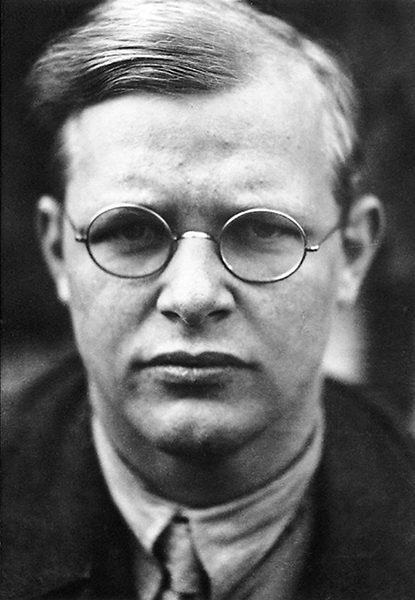 Charles Marsh says, “In 1930 Union Theological Seminary was the proud flagship institution of liberal Protestant theology in America.”[1] Yet, Bonhoeffer quickly found the seminary—and American theology on the whole—wanting. He said, “The students . . . are completely clueless with respect to what dogmatics is really about. They are not familiar with even the most basic questions.” Everyone “just blabs away so frightfully.” His conclusion? “There is no theology here.”
Charles Marsh says, “In 1930 Union Theological Seminary was the proud flagship institution of liberal Protestant theology in America.”[1] Yet, Bonhoeffer quickly found the seminary—and American theology on the whole—wanting. He said, “The students . . . are completely clueless with respect to what dogmatics is really about. They are not familiar with even the most basic questions.” Everyone “just blabs away so frightfully.” His conclusion? “There is no theology here.”
The congregations of New York also came under Bonhoeffer’s ire. He visited many of the well-known Protestant congregations, including Harry Emerson Fosdick’s Riverside Church, and never heard of our crucified Christ. “In New York, they preach about virtually everything,” Bonhoeffer said, “except . . . the gospel of Jesus Christ.”[2]
Before his arrival in September 1930, “Bonhoeffer had never had a conversation with a person of color.”[3] Bonhoeffer had been made aware of the “American dilemma,” but it wasn’t until a fellow student invited him to attend a Sunday-morning church service in Harlem that Bonhoeffer not only encountered African-American spirituality, but also “had any experience of American preaching and worship that seemed to him authentic and vital.”[4] Bonhoeffer became a frequent attender at Abyssinian Baptist Church and met with a group of “Negro boys each week,” he said of what he understood as “one of my most important experiences in America.” Bonhoeffer cherished the exuberance and seriousness of what he had at Abyssinian. After the spring semester of ’31 Bonhoeffer and a few friends jumped into a secondhand Oldsmobile for Mexico. More than just wanting to visit the next country south, Bonhoeffer wanted to get a real-life sense of life for blacks in the south—during the time of sharp segregation and Depression-era poverty.
Marsh says,
When, on June 20, 1931 Bonhoeffer embarked on his return to Germany, it was with a new perspective on his vocation as theologian and pastor. He was ready at last to put away childish things, foremost his professional ambitions, and begin to search the Christian and Jewish traditions for peacemaking, dissent, and civil courage. The technical terminology faded steadily from his writings, giving way to a language more direct and expressive of lived faith . . . ‘It is the problem of concreteness that at present so occupies me,’ he wrote upon his return to Berlin—this from the young theologian who ten months earlier had found American pragmatism such an affront to Germanic exactitude.[5]
So Bonhoeffer arrives in the fall of 1931 a changed theologian to a rapidly changing Germany.
The Prophet Returns Home
Capitalizing on the failed Weimar Republic, rising inflation, and enduring humiliation from the Versailles Treaty Hitler’s Nazi party was beginning to make loud rumblings in German politics. While Bonhoeffer was in America the Nazis had become the second-largest party in the Reichstag. Less than a year after Bonhoeffer returned the Nazis had become the largest party and almost 18-months after he began his lecturing at the university Hitler was in total control as a result of the Enabling Act.
Alarmed by the German Christian church’s appeasement of and cowering to the Nazi’s Aryan-supremacy worldview Bonhoeffer found himself function as something like a prophet crying out in the wilderness, warning against the heinous trajectory of destruction on which the Nazis were moving. During this time Bonhoeffer would publish and lecture on topics that would prove to be foundational to Discipleship and Life Together:
- Lectures on “The Nature of the Church (1932)
- Article on “The Church and the Jewish Question” (April 1933)
- Lectures on Christology (Summer 1933)
In the fall of 1933 Bonhoeffer helped to organize the Pastors’ Emergency League (and the subsequent Confessing Church and Barmen Declaration) due to the mainline Lutheran church of his youth rapidly deteriorating beyond repair. The prophetic cry of costly grace thus now fully had its audience. Yet, there is another vital development in Bonhoeffer for our grasping, particularly, the milieu of Life Together and Bonhoeffer’s focus on the Sermon on the Mount in Discipleship.
A New Monasticism
In October of 1933 Bonhoeffer began a pastorate for two German-speaking congregations in London. While in England he made a point to visit as many alternative seminaries, peace centers, and monasteries as he could. Why? He had come to see The Sermon on the Mount as having an inalterably integral part of Christian spirituality. He a letter to his older brother during the London period Bonhoeffer said,
I think I am right to say that true inner clarity and honesty will come only by starting to take the Sermon on the Mount seriously. In it alone is the force that can blow all this hocus-pocus sky-high . . . The restoration of the church must surely depend on a new kind of monasticism, which has nothing in common with its former self but proposes a life of uncompromising discipleship, following Christ according to the Sermon on the Mount. I believe the time has come to gather the people together and do this.[6]
And so he did. At the urging of a council of the Confessing Church, convened in February of 1935, Bonhoeffer would take leave from his London obligations to set up a theological seminary for the Confessing Church.
Painting on a Blank Canvas
Often thought of as a covert religious institution, the seminary—ultimately located in Finkenwalde—operated for almost half its time without state opposition. It was at Finkenwalde that Bonhoeffer not only enjoyed the most blissful years of his life, it was also an opportunity for him to paint onto a blank spiritual canvas the myriad of convictions regarding spirituality he had amassed over the previous six years.[7]
“As an experiment in Protestant monasticism—at its root, something of a contradiction in terms, Luther’s teaching having closed far more monasteries than it founded—Finkenwalde needed to square the self-abnegation of the cloister with the individual freedom implicit in the Reformation view of Christian community.”[8] Bonhoeffer attempted to manage this great tension by thoroughly regulating most of each day, while simultaneously allowing for students to come and go from the seminary as they pleased. It was a tension not without many complaints, some students often referred to Bonhoeffer as “Der Fuhrer,” but on the whole it was a time of great growth and joy for the group.
The joy of Finkenwalde came to an end in mid-October 1937, but the seminary proved to be the ultimate context for Bonhoeffer’s most enduring works in American evangelicalism: Discipleship and Life Together. In November 1937 Bonhoeffer published Discipleship (the German title is “Nachfolge,” an imperative better translated “Follow Me”),[9] and in 1939 Life Together, with Prayerbook of the Bible following in 1940.
——————————————————————————————————————————
[1] Marsh, 103.
[2] Marsh, 111.
[3] Marsh, 115.
[4] Marsh, 115.
[5] Marsh, 134.
[6] Marsh, 217. Bonhoeffer would later say to Sutz, when thinking about the ecclesiastical division in Germany, “Perhaps this may amaze you, [but] it is my belief that the Sermon on the Mount will be the deciding word on this who affair” (Marsh, 226).
[7] Marsh concurs, “Finkenwalde ultimately existed as the canvas on which he aspired to render his personal ideal of a Christian community. (240)
[8] Marsh, 237.
[9] The English translation, The Cost of Discipleship, originally appeared in 1948.
 I’m at “The Institution”—The Southern Baptist Theological Seminary—all week doing some PhD work and one of the seminars is “Patristic & Celtic Spirituality” with Dr. Michael Haykin.
I’m at “The Institution”—The Southern Baptist Theological Seminary—all week doing some PhD work and one of the seminars is “Patristic & Celtic Spirituality” with Dr. Michael Haykin.

